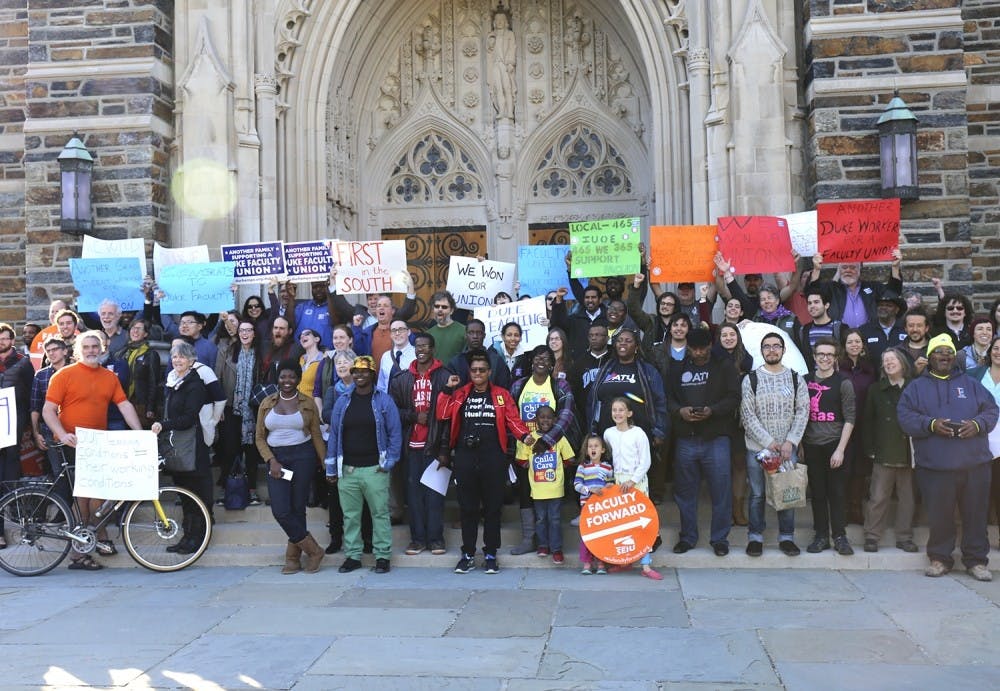Over 2,300 Duke University staff members will get a pay raise by 2019.
Duke will increase its minimum wage to $15 per hour for all regular university and health system staff, according to an Aug. 25 university statement.
Contractors who employ individuals working on Duke’s campus will be expected to move their full-time employees on campus to the new Duke minimum wage according to the same schedule.
UNC has two minimum wages: one determined by the state and one determined by the University — both less than Duke's planned $15.
Linc Butler, UNC's associate vice chancellor for Human Resources, said in an email statement that compensation explanations or changes in state government and state university settings are rarely simple and differ from private employers.
The statement said the University has two general types of employees: those who are Subject to the (State) Human Resources Act — known as SHRA, including staff and employees — and those who are Exempt from the (State) Human Resources Act — known as EHRA, including EHRA non-faculty and faculty members.
The Human Resources Act provides employers who receive state funding guidelines to manage their employees.
Salary ranges for SHRA employees are established by the state through the Office of State Human Resources. UNC's minimum salary is $25,000, equating to $12.02 per hour.
UNC has the authority to develop its own ranges for EHRA Non-Faculty employees in compliance with federal laws and UNC-system policies. The minimum salary for an EHRA Non-Faculty employee is $30,000, or $14.42 per hour.




